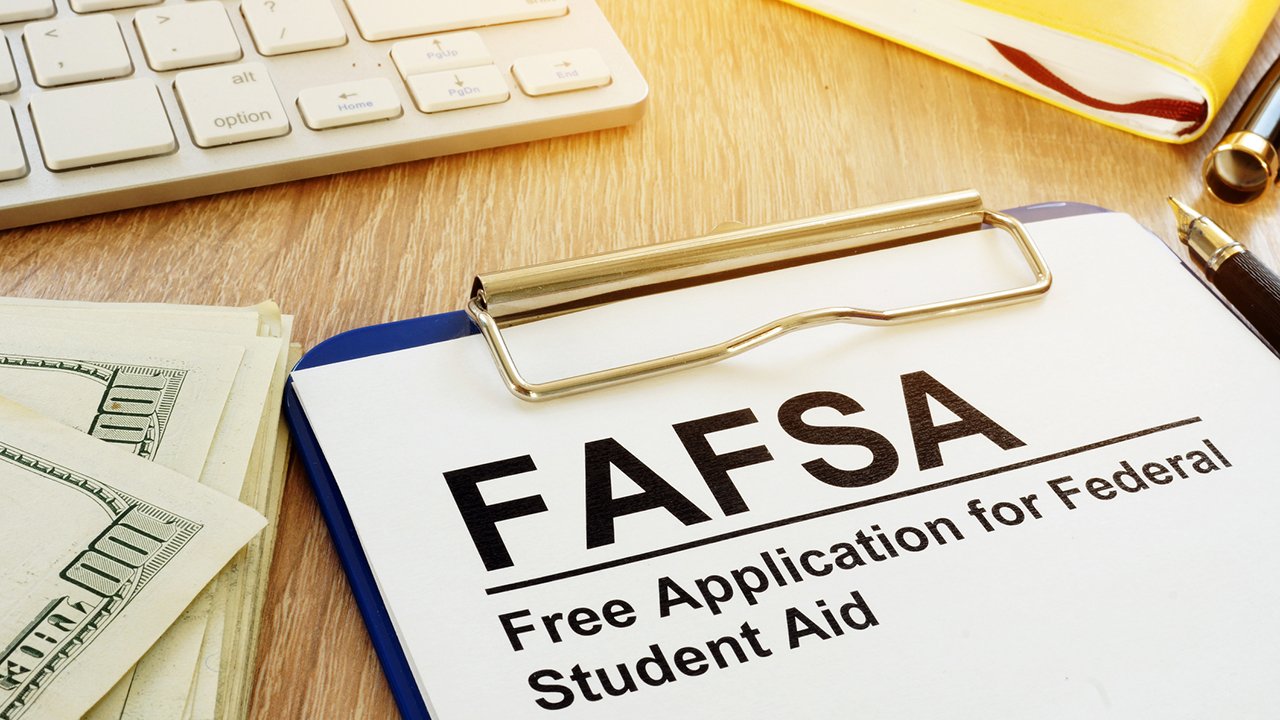How to maximize your GI Bill with the FAFSA
The Free Application for Federal Student Aid, also known as the FAFSA, opens today, October 1. Many folks incorrectly assume that, because they are working or because they are not living with their parents, they may not be eligible for federal student aid. That’s not true! The FAFSA, as its name implies, is free, and it was redesigned a few years ago to be easier to complete than ever before.
Here are three reasons why you, as a veteran, should complete the FAFSA and other financial aid applications:
Free Application for Federal Student Aid (FAFSA) concept.
You might be eligible for financial aid, even if you don’t think you would be.
When we talk about financial aid, you might assume we only mean loans that you have to pay back. While low-interest loans can be a part of a financial aid package, the best kind of financial aid you can get are scholarships or grants that do not have to be paid back. If you meet a particular income threshold, you might be eligible for a Pell Grant. There are even loans, grants, and other incentives designed for particular fields of study. Filling out the FAFSA doesn’t mean you are just going to be offered loans; the FAFSA uses your data to give you a combination of different types of financial aid.
Completing the FAFSA might make you eligible for scholarships and grants directly from the schools you’re applying to.
There are two types of financial aid: federal aid and institutional aid. Federal aid is what we’re talking about here with the FAFSA, but most colleges offer scholarships and grants to applicants. There’s a catch, though: many of them require that you complete the FAFSA to even be eligible for those funds. That means that completing the FAFSA gives you even more opportunities to be considered for financial assistance.
It allows you to maximize the use of your GI Bill.
Let’s say you complete the FAFSA and find that you are eligible for some, but not a lot, of financial aid. Because you’ve brought the expense of your college education down, your GI Bill can go a little further. If you are able to obtain financial aid for your undergraduate study, you might even be able to use your GI benefits for graduate school. The GI bill is undoubtedly a fantastic benefit to use at this point in your academic career, but make sure you look at all options to maximize how much help you can get. We put together a guide to maximizing your Post 9-11 GI Bill & Yellow Ribbon Benefits to get you started.
One note: the FAFSA is not the only financial aid application out there. Another common one you’ll run into is the CSS Profile, which is owned by the College Board. Double check whether your schools require the CSS Profile. While it’s not free like the FAFSA is, you may be eligible for a fee waiver.
Additional Reading:
https://withfrank.org/how-to-pay-for-college/what-are-the-types-of-aid-available/aid-for-military-service/can-i-receive-fafsa-and-gi-bill-together/
https://withfrank.org/how-to-pay-for-college/what-are-the-types-of-aid-available/aid-for-military-service/how-much-aid-can-i-receive-as-a-veteran/
https://www.military.com/education/money-for-school/federal-student-aid.html
https://www.military.com/education/money-for-school/veteran-education-benefits-users-guide.html



